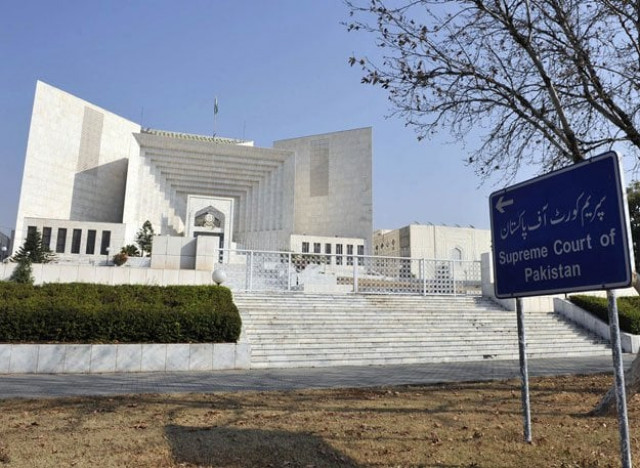Set aside for now: Top court suspends LHC’s verdict on surcharges
Judicial activism panel chief expresses concerns, says respondents stance not heard.

PHOTO: AFP
The Supreme Court has suspended the Lahore High Court’s recent verdict, which declared surcharges worth over Rs 100 billion collected from power consumers as ‘unconstitutional and illegal’.
Last week, the water and power ministry had filed a petition in the top court under Article 185(3), fearing that the LHC’s May 29 decision would cause irreparable losses if the judgment was not overturned.
The high court had struck down Section 31(5) of the Regulation, Transmission and Distribution of Electric Power Act of 1997. Under this act, power supply companies add different surcharges to the monthly bills of electricity consumers.On Monday, a three-judge bench of the apex court headed by Chief Justice Nasirul Mulk took up the ministry’s plea.

Attorney General for Pakistan Salman Aslam Butt appearing on behalf of the water ministry raised several objections over the LHC’s verdict before the bench.
The bench then suspended the LHC’s decision until the final verdict and issued notices to all respondents after the chief justice observed that this case could not be decided forthwith.
Indefinite adjournment
Talking to The Express Tribune, Judicial Activism Panel Chairman Azhar Siddique, who won the case in the high court, expressed serious concerns over the suspension of the LHC order by the apex court even before hearing the respondents’ stance. He maintained the electricity surcharges were illegal and the case would be vigorously defended.
In its petition, the federal government submitted that laws relating to economic activities/utilities should be viewed with greater latitude than laws touching civil rights. In the utilities and economic regulation cases, there are good reasons for judicial self-restraint if not judicial deference to legislative judgment.
The government stated that the LHC did not follow or keep in mind the said principles while passing the judgment, which was liable to be set aside.
The government stated it was providing a huge subsidy to the people of Pakistan. One of the essential components of the power policy is to safeguard the low-end consumers from price hikes and tariff rationalisation with an aim to minimise subsidy within industrial, commercial and bulk consumers, it said.
The surcharges, the petition stated, were nothing but the cost of electricity being recovered to fulfil the cost of services, financial and development requirements of the power sector and were not aimed at raising any revenues for the federal government.
“The balance of convenience, as well as equity, strongly favours the petitioner to ensure smooth working of the power sector in the country without collapse,” said the petition.
The federal government, keeping in view various parameters, including socioeconomic objectives, budgetary targets, policy of maintaining uniform tariff rates and Nepra recommendations with respect to consumer end-tariff for each distribution company, was using a uniform tariff to be charged from all the consumers.
The application also stated the government was directly empowered by the legislature to levy surcharges without any role or intervention of Nepra.
Published in The Express Tribune, June 9th, 2015.



















COMMENTS
Comments are moderated and generally will be posted if they are on-topic and not abusive.
For more information, please see our Comments FAQ